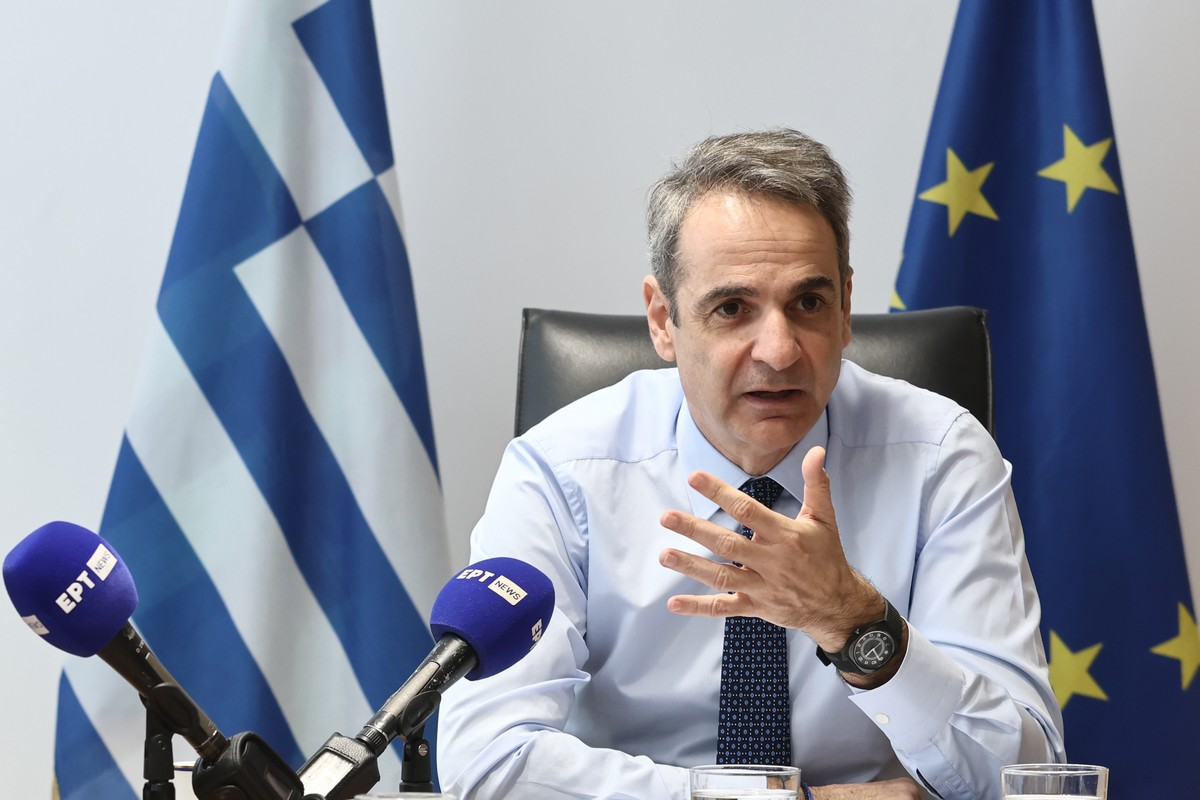Prime Minister Kyriakos Mitsotakis unveiled Greece’s new migration strategy during his visit to the Ministry of Migration and Asylum on the morning of Wednesday, March 26. He highlighted that the government’s primary policy objectives focus on reducing unauthorized migration while simultaneously organizing legal migration to address genuine labor market shortages.
Mitsotakis initially pointed to encouraging data from the first months of the year, noting a 36% decline in arrival flows. He clarified that border security does not fall under the jurisdiction of the ministry of migration and asylum but is closely coordinated with the Ministry of Civil Protection and the Ministry of Maritime Affairs.
Additionally, he highlighted the completion of EU-funded infrastructure projects on the Eastern Aegean islands, emphasizing their necessity despite the hope that they would never need to operate at full capacity.
Mitsotakis reiterated Greece’s commitment to leading the European dialogue on the return regulation, aligning national policies with broader EU strategies.
“The national policy, which has also become a European policy, is straightforward. Those who arrive in Greece and qualify for asylum are welcomed and encouraged to stay and build a life in the country. However, individuals who enter illegally should be aware that every effort will be made to facilitate their return to their country of origin,” he stressed.
Mitsotakis expressed confidence that the new European return regulation, currently under discussion, would provide the necessary legal framework to support this policy.
Turning to legal and structured migration, he reiterated the importance of addressing labor shortages in key sectors such as agriculture and construction, where domestic workforce availability remains insufficient.
He noted that the Ministry of Migration and Asylum would play a central role in coordinating with other relevant ministries to streamline and accelerate legal migration processes.
Mitsotakis also underscored Greece’s longstanding commitment to supporting unaccompanied minors, affirming that the government would continue demonstrating social responsibility in this area while optimizing related procedures to assist as many children as possible within the existing budget framework.
Finally, the prime minister touched on an initiative of particular significance to the Aegean islands—the extension of the fast-track visa program for Turkish visitors. He emphasized that this initiative represents an exception to the standard Schengen regulations, reflecting Greece’s commitment to bolstering regional tourism and economic activity.




